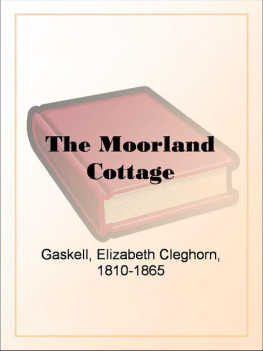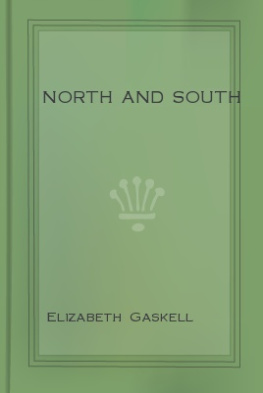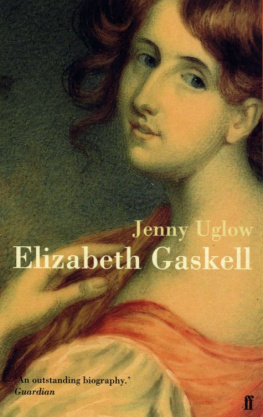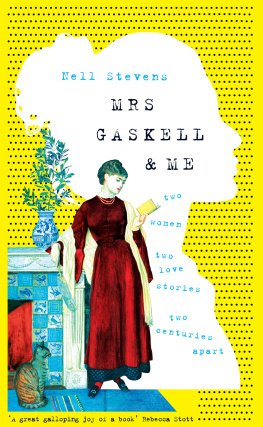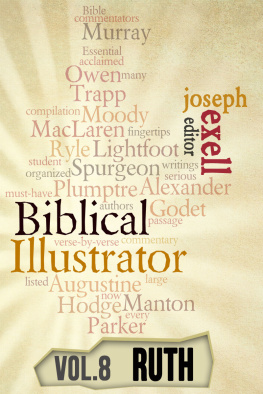CURIOUS IF TRUE
BY ELIZABETH GASKELL
You were formerly so much amused at my pride in my descent from that sister of Calvin's, who married a Whittingham, Dean of Durham, that I doubt if you will be able to enter into the regard for my distinguished relation that has led me to France, in order to examine registers and archives, which, I thought, might enable me to discover collateral descendants of the great reformer, with whom I might call cousins. I shall not tell you of my troubles and adventures in this research; you are not worthy to hear of them; but something so curious befel me one evening last August, that if I had not been perfectly certain I was wide awake, I might have taken it for a dream.
For the purpose I have named, it was necessary that I should make Tours my head-quarters for a time. I had traced descendants of the Calvin family out of Normandy into the centre of France; but I found it was necessary to have a kind of permission from the bishop of the diocese before I could see certain family papers, which had fallen into the possession of the Church; and, as I had several English friends at Tours, I awaited the answer to my request to Monseigneur de , at that town. I was ready to accept any invitation; but I received very few; and was sometimes a little at a loss what to do with my evenings. The table d'hte was at five o'clock; I did not wish to go to the expense of a private sitting-room, disliked the dinnery atmosphere of the salle manger, could not play either at pool or billiards, and the aspect of my fellow guests was unprepossessing enough to make me unwilling to enter into any tte- -tte gamblings with them. So I usually rose from table early, and tried to make the most of the remaining light of the August evenings in walking briskly off to explore the surrounding country; the middle of the day was too hot for this purpose, and better employed in lounging on a bench in the Boulevards, lazily listening to the distant band, and noticing with equal laziness the faces and figures of the women who passed by.
One Thursday evening, the 18th of August it was, I think, I had gone further than usual in my walk, and I found that it was later than I had imagined when I paused to turn back. I fancied I could make a round; I had enough notion of the direction in which I was, to see that by turning up a narrow straight lane to my left I should shorten my way back to Tours. And so I believe I should have done, could I have found an outlet at the right place, but field-paths are almost unknown in that part of France, and my lane, stiff and straight as any street, and marked into terribly vanishing perspective by the regular row of poplars on each side, seemed interminable. Of course night came on, and I was in darkness. In England I might have had a chance of seeing a light in some cottage only a field or two off, and asking my way from the inhabitants; but here I could see no such welcome sight; indeed, I believe French peasants go to bed with the summer daylight, so if there were any habitations in the neighbourhood I never saw them. At lastI believe I must have walked two hours in the darkness, I saw the dusky outline of a wood on one side of the weariful lane, and, impatiently careless of all forest laws and penalties for trespassers, I made my way to it, thinking that if the worst came to the worst, I could find some covertsome shelter where I could lie down and rest, until the morning light gave me a chance of finding my way back to Tours. But the plantation, on the outskirts of what appeared to me a dense wood, was of young trees, too closely planted to be more than slender stems growing up to a good height, with scanty foliage on their summits. On I went towards the thicker forest, and once there I slackened my pace, and began to look about me for a good lair. I was as dainty as Lochiel's grandchild, who made his grandsire indignant at the luxury of his pillow of snow: this brake was too full of brambles, that felt damp with dew; there was no hurry, since I had given up all hope of passing the night between four walls; and I went leisurely groping about, and trusting that there were no wolves to be poked up out of their summer drowsiness by my stick, when all at once I saw a chteau before me, not a quarter of a mile off, at the end of what seemed to be an ancient avenue (now overgrown and irregular), which I happened to be crossing, when I looked to my right, and saw the welcome sight. Large, stately, and dark was its outline against the dusky night-sky; there were pepper-boxes and tourelles and what-not fantastically going up into the dim starlight. And more to the purpose still, though I could not see the details of the building that I was now facing, it was plain enough that there were lights in many windows, as if some great entertainment was going on.
"They are hospitable people, at any rate," thought I. "Perhaps they will give me a bed. I don't suppose French propritaires have traps and horses quite as plentiful as English gentlemen; but they are evidently having a large party, and some of their guests may be from Tours, and will give me a cast back to the Lion d'Or. I am not proud, and I am dog-tired. I am not above hanging on behind, if need be."
So, putting a little briskness and spirit into my walk, I went up to the door, which was standing open, most hospitably, and showing a large lighted hall, all hung round with spoils of the chase, armour, &c., the details of which I had not time to notice, for the instant I stood on the threshold a huge porter appeared, in a strange, old-fashioned dress, a kind of livery which well befitted the general appearance of the house. He asked me, in French (so curiously pronounced that I thought I had hit upon a new kind of patois), my name, and whence I came. I thought he would not be much the wiser, still it was but civil to give it before I made my request for assistance; so, in reply, I said
"My name is WhittinghamRichard Whittingham, an English gentleman, staying at ." To my infinite surprise, a light of pleased intelligence came over the giant's face; he made me a low bow, and said (still in the same curious dialect) that I was welcome, that I was long expected.
"Long expected!" What could the fellow mean? Had I stumbled on a nest of relations by John Calvin's side, who had heard of my genealogical inquiries, and were gratified and interested by them? But I was too much pleased to be under shelter for the night to think it necessary to account for my agreeable reception before I enjoyed it. Just as he was opening the great heavy battants of the door that led from the hall to the interior, he turned round and said,
"Apparently Monsieur le Ganquilleur is not come with you."
"No! I am all alone; I have lost my way," and I was going on with my explanation, when he, as if quite indifferent to it, led the way up a great stone staircase, as wide as many rooms, and having on each landing-place massive iron wickets, in a heavy framework; these the porter unlocked with the solemn slowness of age. Indeed, a strange, mysterious awe of the centuries that had passed away since this chteau was built, came over me as I waited for the turning of the ponderous keys in the ancient locks. I could almost have fancied that I heard a mighty rushing murmur (like the ceaseless sound of a distant sea, ebbing and flowing for ever and for ever), coming forth from the great vacant galleries that opened out on each side of the broad staircase, and were to be dimly perceived in the darkness above us. It was as if the voices of generations of men yet echoed and eddied in the silent air. It was strange, too, that my friend the porter going before me, ponderously infirm, with his feeble old hands striving in vain to keep the tall flambeau he held steadily before him, strange, I say, that he was the only domestic I saw in the vast halls and passages, or met with on the grand staircase. At length we stood before the gilded doors that led into the saloon where the familyor it might be the company, so great was the buzz of voiceswas assembled. I would have remonstrated when I found he was going to introduce me, dusty and travel-smeared, in a morning costume that was not even my best, into this grand


